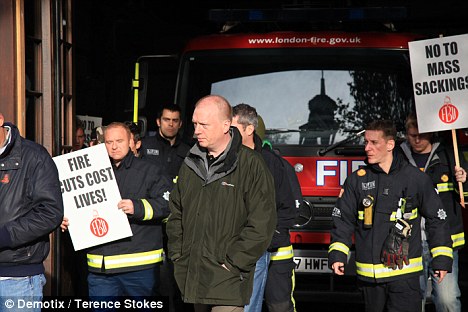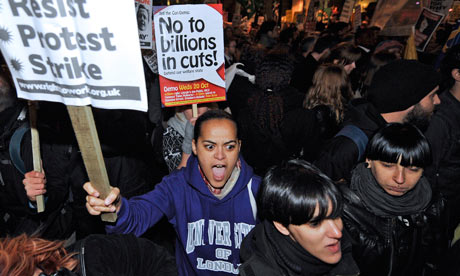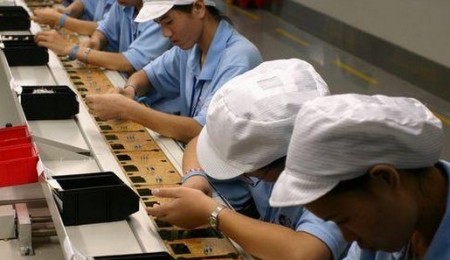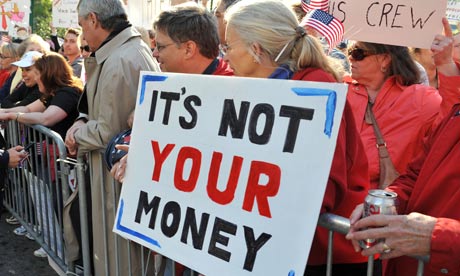Thousands of fire fighters in London are set to strike from 10am on November 5 to 9am on November 7, in a dispute over new shift patterns and management bullishness over the matter. Naturally, the bosses they're challenging and the politicians that serve them aren't happy.
The action, we are told, is "cynical" and "reckless." It has prompted fears, predictably stoked by the Daily Mail, of "a new wave union militancy."
Fire authority chairman Brian Coleman asked "what sort of union orders its firefighters to go on strike over Bonfire Night?" Clearly, the man needs a lesson in the history of the labour movement, and exactly how exercising your labour power as leverage against the employer works. Or, more likely, he is a wilfully ignorant buffoon trying to force his staff into accepting the race to the bottom.
Tory MP Nadhim Zahawi, of Parliament’s All Party Fire Safety and Rescue Group claimed that the firefighters were "endangering the lives of people for the sake of a change to their shift patterns." This became the flimsy excuse to call for no-strike laws on firemen.
He "would support anti-strike legislation if it stops putting people’s lives in danger." The idea that not trying to impose unfavourable conditions on those saving said lives might be a far better solution appears not to have crossed his mind. Not that we would expect it to, for the only consistent principle on the right is that the bosses must be favoured over the workers, at all costs.
Personally, I would hope that there is a return to "old fashioned, militant muscle," as Tory fire minister Bob Neill put it. Especially now, it is vital that workers stand up for ourselves.
Likewise, reports that striking firefighters responded to scabbing with direct action is to be welcomed. According to the BBC, "footage has emerged showing a group of people surrounding a fire engine returning to the fire station at Southwark Bridge Road, south London." At the same time, "images and names of some of the contract workers were put on a Facebook page set up in support of the strike."
Initiating violence against anybody is unacceptable, and I in no way advocate a return to the days when scabs were attacked and even murdered by pickets. But naming and shaming them, or blockading them so they cannot act as intended, is not even close to such a scenario.
Those who cross the picket line are not neutral parties. By doing so, they side with the bosses, and far more needs to be done to directly impede them in that effort.
More broadly, it appears that the firefighters' strike has thus far exemplified what pickets should be. The Socialist Worker reports that "at the picket’s peak more than 200 firefighters and supporters were gathered outside the fire brigade’s Southwark Training Centre in south London." This is exactly the kind of rank-and-file mass participation and solidarity that organised workers need on all picket lines, especially as the struggles intensify with the cuts.
The bosses and politicians, along with their mouthpieces in the media, are right to "fear" the militancy of the working class. It is a threat to them and their ability to use us and dispose of us as they see fit. That is exactly why I welcome it and say bring on the fight.
He "would support anti-strike legislation if it stops putting people’s lives in danger." The idea that not trying to impose unfavourable conditions on those saving said lives might be a far better solution appears not to have crossed his mind. Not that we would expect it to, for the only consistent principle on the right is that the bosses must be favoured over the workers, at all costs.
Personally, I would hope that there is a return to "old fashioned, militant muscle," as Tory fire minister Bob Neill put it. Especially now, it is vital that workers stand up for ourselves.
Likewise, reports that striking firefighters responded to scabbing with direct action is to be welcomed. According to the BBC, "footage has emerged showing a group of people surrounding a fire engine returning to the fire station at Southwark Bridge Road, south London." At the same time, "images and names of some of the contract workers were put on a Facebook page set up in support of the strike."
Initiating violence against anybody is unacceptable, and I in no way advocate a return to the days when scabs were attacked and even murdered by pickets. But naming and shaming them, or blockading them so they cannot act as intended, is not even close to such a scenario.
Those who cross the picket line are not neutral parties. By doing so, they side with the bosses, and far more needs to be done to directly impede them in that effort.
More broadly, it appears that the firefighters' strike has thus far exemplified what pickets should be. The Socialist Worker reports that "at the picket’s peak more than 200 firefighters and supporters were gathered outside the fire brigade’s Southwark Training Centre in south London." This is exactly the kind of rank-and-file mass participation and solidarity that organised workers need on all picket lines, especially as the struggles intensify with the cuts.
The bosses and politicians, along with their mouthpieces in the media, are right to "fear" the militancy of the working class. It is a threat to them and their ability to use us and dispose of us as they see fit. That is exactly why I welcome it and say bring on the fight.























